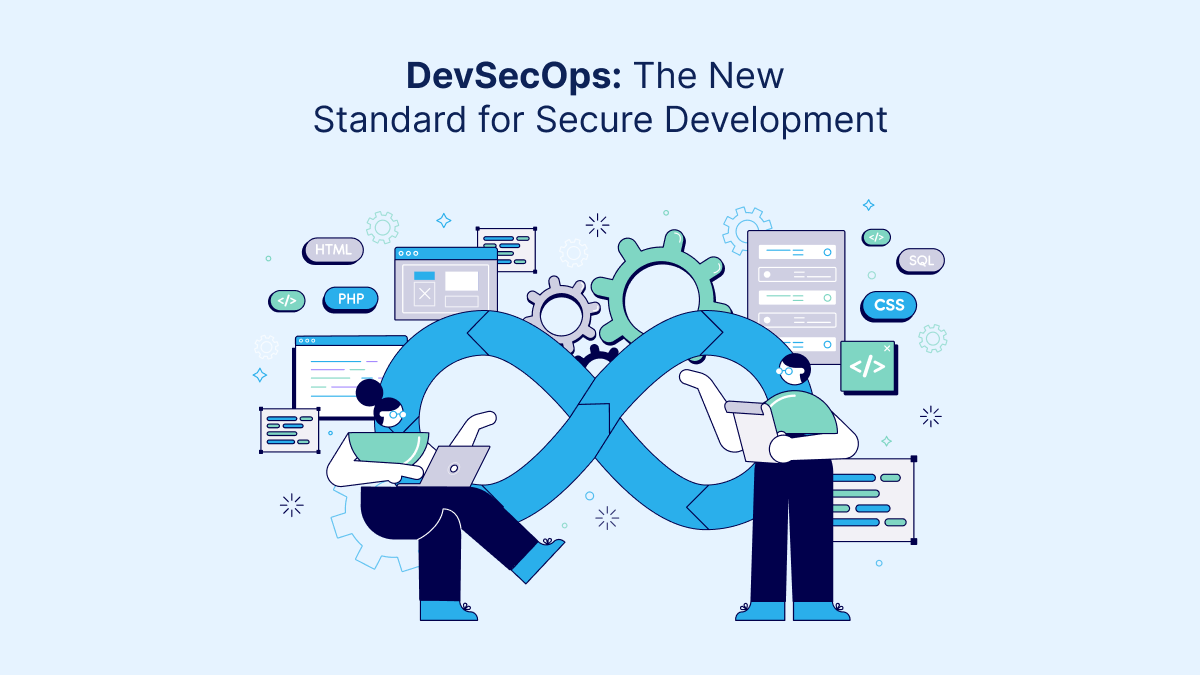In today’s fast-paced digital world, the demand for faster software delivery is higher than ever. Companies want to push new features, updates, and products to market quickly, but they also need to ensure that these software solutions are secure. This is where DevSecOps comes into play. DevSecOps is the combination of development, security, and operations. It focuses on integrating security practices directly into the software development lifecycle, ensuring that security is never an afterthought.
As cyber threats grow more sophisticated, the traditional approach of securing software at the end of the development process is no longer enough. Businesses are now adopting DevSecOps as the new standard for secure development to stay ahead of these threats while maintaining speed and efficiency.
Understanding DevSecOps
DevSecOps stands for Development, Security, and Operations. It is an extension of the DevOps methodology, which aims to improve collaboration between development and operations teams. By adding security into the mix, DevSecOps ensures that security is built into every stage of the software development process.
Instead of waiting until the final stages of development to address security concerns, DevSecOps emphasizes continuous security integration. This means using automated security tools, conducting regular vulnerability assessments, and involving security professionals throughout the development lifecycle.
Why DevSecOps Matters Today
Growing Cybersecurity Threats
Cybersecurity threats are constantly evolving, making it crucial for organizations to adopt proactive security measures. Hackers are always looking for vulnerabilities in software, and delaying security checks increases the risk of attacks.
Faster Development Cycles
Modern businesses operate in competitive markets where quick deployment is essential. DevSecOps helps teams maintain speed without sacrificing security. It allows developers to fix issues in real-time rather than revisiting code after development is completed.
Regulatory Compliance
Many industries, including finance, healthcare, and e-commerce, face strict compliance regulations related to data privacy and security. DevSecOps ensures that applications meet these standards from the ground up, reducing the risk of non-compliance penalties.
Building Customer Trust
Consumers are more aware of data privacy concerns than ever before. By implementing DevSecOps, companies can build more secure applications that protect user data, thus enhancing customer trust and loyalty.
Key Principles of DevSecOps
Security as Code
Security is treated as code in DevSecOps. This involves writing security policies and controls in a programmable format that can be automated and integrated into development pipelines.
Shift Left Strategy
The shift left strategy refers to addressing security earlier in the development process. This helps catch vulnerabilities sooner, making them easier and less expensive to fix.
Automation
Automation is central to DevSecOps. Automated tools perform continuous code scanning, vulnerability assessments, and compliance checks. This ensures that security practices keep up with the rapid pace of development.
Continuous Monitoring
Even after deployment, continuous monitoring helps detect and respond to threats in real-time. This ongoing vigilance is essential for maintaining security in dynamic environments like cloud infrastructure.
Collaboration and Shared Responsibility
DevSecOps promotes collaboration between developers, operations teams, and security professionals. Everyone shares the responsibility of maintaining security, which fosters a culture of collective accountability.
Essential Tools Used in DevSecOps
- Static Application Security Testing (SAST): Analyzes source code for security flaws during the development phase.
- Dynamic Application Security Testing (DAST): Tests applications in real-time to find vulnerabilities in running code.
- Software Composition Analysis (SCA): Identifies vulnerabilities in third-party components and open-source libraries.
- Infrastructure as Code (IaC) Tools: Ensures secure configurations in infrastructure provisioning.
- CI/CD Pipeline Tools: Integrate security checks into continuous integration and deployment workflows.
Read More: DevOps Cloud Consulting Services for Scalable IT Setup
Benefits of Adopting DevSecOps
Enhanced Security
By integrating security throughout the development lifecycle, organizations can identify and fix vulnerabilities earlier, reducing the risk of exploitation.
Faster Time to Market
Security automation allows teams to maintain fast development and deployment cycles without compromising safety, helping businesses stay competitive.
Cost Savings
Fixing security issues early in development is significantly cheaper than addressing them after deployment or after a breach.
Regulatory Compliance
DevSecOps helps ensure that software complies with industry standards and regulations, simplifying audits and reducing legal risks.
Increased Collaboration
DevSecOps fosters better communication and cooperation between traditionally siloed teams, leading to more cohesive and efficient workflows.
Challenges in Implementing DevSecOps
While the benefits are clear, implementing DevSecOps can present challenges:
- Cultural Resistance: Shifting to a DevSecOps mindset requires a change in organizational culture, which can be difficult for some teams.
- Skill Gaps: Not all developers or operations professionals have strong security expertise, necessitating training and upskilling.
- Tool Integration: Integrating security tools seamlessly into existing development pipelines can be complex.
- Resource Constraints: Small and medium-sized businesses might struggle with the resource investment needed for comprehensive DevSecOps practices.
Best Practices for a Successful DevSecOps Strategy
- Start Small and Scale: Begin with small projects to test DevSecOps practices before scaling up across the organization.
- Invest in Training: Provide ongoing training for teams to build security awareness and skills.
- Use Automation Wisely: Automate repetitive security tasks to reduce human error and free up resources for more complex issues.
- Implement Continuous Feedback Loops: Ensure continuous improvement by incorporating feedback from security testing and monitoring.
- Foster a Security-First Culture: Encourage all team members to prioritize security in their work, making it an integral part of the development process.
Conclusion
DevSecOps is quickly becoming the new standard for secure software development. As cyber threats grow more sophisticated and regulations tighten, businesses need a robust approach to security that aligns with modern development practices. By integrating security into every phase of development, organizations can build more secure, reliable, and compliant software solutions.
For entrepreneurs and companies planning to develop their digital platforms, it is essential to work with a reliable on-demand app development company. Such a partnership ensures that security best practices are embedded into the core of the app development process, safeguarding both the business and its users from potential threats.

FAQs
What is DevSecOps?
DevSecOps is a methodology that integrates security practices directly into the software development and operations process, ensuring security is addressed from the start.
Why is DevSecOps important?
It helps organizations build secure applications quickly, meet compliance requirements, and protect against evolving cyber threats.
How does DevSecOps differ from traditional DevOps?
While DevOps focuses on collaboration between development and operations teams, DevSecOps adds a dedicated focus on security throughout the development lifecycle.
What tools are commonly used in DevSecOps?
Common tools include SAST, DAST, SCA, IaC security tools, and CI/CD pipeline integrations that automate security checks.
Can small businesses adopt DevSecOps?
Yes, small businesses can start with basic automation and gradually scale their DevSecOps practices as they grow, ensuring security remains a priority without overwhelming resources.






